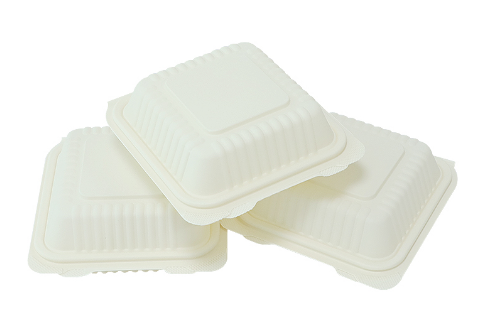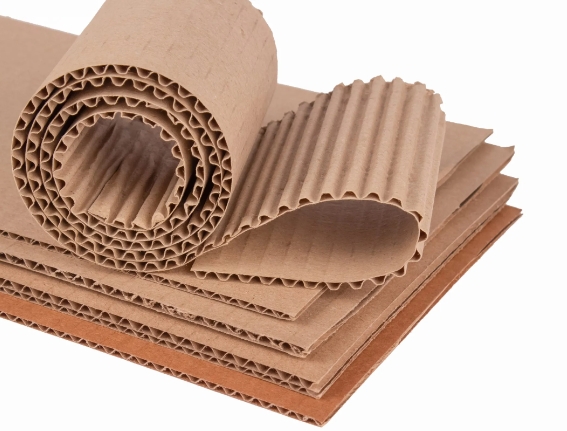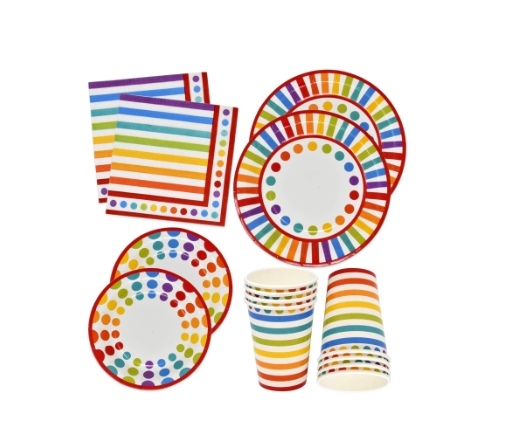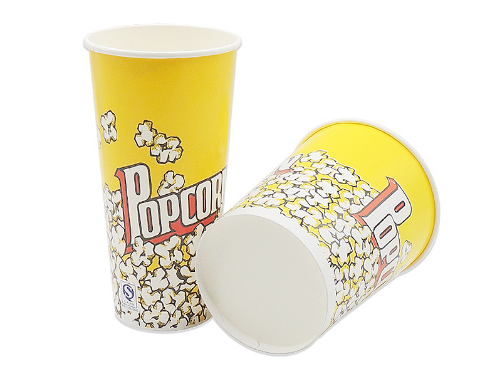Definition of Compostable Tableware
Compostable tableware is a type of tableware that is crafted from materials that possess the remarkable ability to break down and decompose naturally in a composting environment. These materials, one must note, are derived from renewable resources such as the fibers of plants, cornstarch, or the residue left after extracting juice from sugarcane, known as bagasse. The purpose of compostable tableware is to supplant the use of traditional plastic or Styrofoam tableware. It is ingeniously engineered to be compostable, meaning it can be transformed into a nutrient-rich compost that has the power to enrich the soil and foster the growth of plants.
Characteristics and Benefits of Compostable Tableware
Compostable tableware possesses several remarkable characteristics and benefits that render it a truly environmentally-friendly alternative to traditional tableware. Firstly, compostable tableware is ingeniously designed to be sturdy and durable, ensuring it can withstand the rigors of normal use without compromising its functionality. It is also imbued with the remarkable property of being heat-resistant, thereby rendering it suitable for the containment of hot food and beverages. Additionally, compostable tableware is endowed with the extraordinary quality of being microwave-safe, allowing it to be used for both hot and cold items. One must not overlook the key benefit of compostable tableware - its eco-friendliness. As it can be composted, it serves to reduce the amount of waste that is sent to landfills, thus aiding in the noble endeavor of diverting organic material from the waste stream. Moreover, the composting of tableware contributes to the health of the soil by infusing it with valuable nutrients, thereby diminishing the need for synthetic fertilizers. Furthermore, compostable tableware is free from harmful chemicals, making it a safer option for both discerning consumers and the environment at large.
Choosing between Compostable and Biodegradable Tableware

When deciding between
compostable and biodegradable tableware, it is essential to consider the specific needs and circumstances. Compostable tableware is ideal for individuals or businesses with access to composting facilities or the ability to create their own compost piles. It requires a controlled composting process to break down effectively. On the other hand, biodegradable tableware offers a more flexible option as it can decompose naturally in various environmental conditions. However, it may take longer to break down compared to compostable tableware. Ultimately, both options contribute to reducing plastic waste and promoting sustainability, so the choice depends on the available resources and desired environmental impact.
Frequently Asked Questions:
1.What are the applications and usage scenarios for compostable and biodegradable tableware?
Compostable tableware is best suited for environments with composting facilities, such as elegant events and high-end catering services. Biodegradable tableware can be used in various environments, including home composting systems and outdoor activities.
2.What should be considered when choosing between compostable and biodegradable tableware?
Considerations include specific requirements and regulations, practicality and convenience factors, and the availability of composting facilities and recycling programs.
Key Differences between Compostable and Biodegradable Tableware
When it comes to sustainable alternatives for single-use tableware, compostable and biodegradable options are often considered. However, there are important distinctions between these two types of tableware in terms of their decomposition process, timeframe for decomposition, and environmental impact.
Decomposition Process

Compostable tableware undergoes a specific composting process. It is designed to break down in a composting facility where controlled conditions, such as temperature and moisture, accelerate decomposition. On the other hand, biodegradable tableware naturally degrades over time without requiring specific conditions or facilities.
1. Composting Process for Compostable Tableware
Compostable tableware is typically made from organic materials, such as plant fibers or starches. In a composting facility, these materials break down into nutrient-rich compost, which can be used to enrich soil and support plant growth. The composting process involves carefully managing the temperature, moisture, and oxygen levels to create an optimal environment for decomposition. This controlled process ensures that the tableware breaks down efficiently and transforms into beneficial compost.
2. Natural Degradation Process for Biodegradable Tableware
Biodegradable tableware, although it may also be made from organic materials, relies on natural degradation processes. Over time, exposure to environmental factors like sunlight, moisture, and microorganisms causes the tableware to break down into smaller pieces. Unlike compostable tableware, biodegradable tableware does not require specific conditions or facilities for decomposition. It gradually disintegrates and returns to the environment without leaving behind any harmful residues.

Timeframe for Decomposition
The timeframe for decomposition differs between
compostable and biodegradable tableware. Understanding these timelines is crucial for selecting the appropriate option based on the intended use and disposal method.
1. Compostable Tableware Decomposition Timeline
Compostable tableware is designed to decompose within a specific timeframe, typically ranging from a few weeks to a few months. This timeframe ensures that the tableware breaks down during the composting process and does not linger in the environment for an extended period. It allows for efficient waste management and the production of nutrient-rich compost in a relatively short span of time.
2. Biodegradable Tableware Decomposition Timeline
The decomposition timeline for biodegradable tableware can vary significantly depending on the specific material used and environmental conditions. It can range from several months to several years. While biodegradable tableware will eventually degrade, it may take longer compared to compostable alternatives. The timeframe for decomposition depends on factors such as the thickness of the material, exposure to sunlight and moisture, and the presence of microorganisms that aid in the breakdown process.
Environmental Impact
The environmental impact of both
compostable and biodegradable tableware should be considered to assess their overall sustainability and contribution to waste reduction.
1. Compostable Tableware's Impact on Soil and Compost Quality
Compostable tableware, when properly processed in a composting facility, can contribute to the production of high-quality compost. The resulting compost improves soil health, enhances nutrient content, and promotes sustainable agriculture. By utilizing compostable tableware, we can reduce the amount of waste sent to landfills and create a valuable resource that supports the growth of plants and crops.
2. Biodegradable Tableware's Impact on the Environment
While biodegradable tableware does break down over time, it may not always leave a positive environmental impact. Some biodegradable materials release harmful substances during degradation or require specific conditions to break down effectively. Additionally, if not disposed of properly, biodegradable tableware can contribute to litter and pollution. It is important to choose biodegradable materials that do not pose any risks to the environment and to ensure proper disposal to minimize any negative effects.
Hyde Group can provide you with any customized printing and size of
compostable and biodegradable tableware you want, such as sugarcane, cornstarch, PLA and so on, which has 12 years of export experience and has exported to more than 150 countries. If there is a certain custom
compostable and biodegradable tableware in your heart, you can feel free to contact us to custom and wholesale, we will reply within 24 hours.
 4537
4537 186
186


 The Diversity of Corrugated Boxes Packaging
The Diversity of Corrugated Boxes Packaging
 Health Concerns With Disposable Paper Plate Usage
Health Concerns With Disposable Paper Plate Usage
 Understanding PE Coated Paper
Understanding PE Coated Paper
 Versatile Bamboo Sticks: Types, Uses, and Benefits
Versatile Bamboo Sticks: Types, Uses, and Benefits